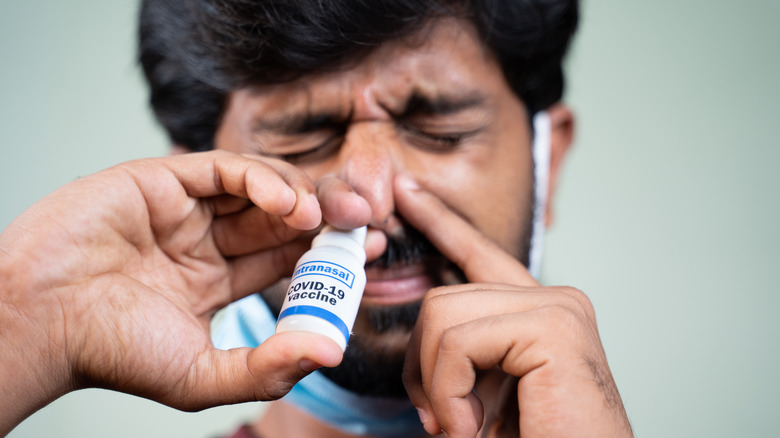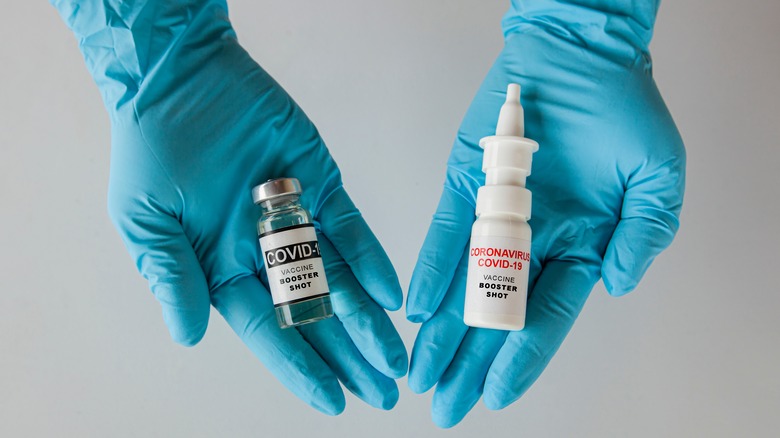How Nasal Sprays Could Be Effective In Treating COVID-19
Understanding the implications of COVID-19 has been a tricky topic over the last two years. Science has made huge strides with vaccines, booster shots, and making testing sites accessible, all helping to slow the spread of the virus and lower the rate of hospitalizations. While restrictions are easing and social gatherings are becoming more acceptable, researchers are now looking for ways to prevent symptomatic cases of the virus (via Healthline).
Dr. Jennifer Lighter, a pediatric infectious disease specialist at NYU Langone, told Healthline, "What [vaccines] are doing is amazing because they prevent severe disease, which is the whole point. But it would be even better if we could prevent transmission."
Recently, Nature published an article that examined how nasal spray can help stop the spread of COVID-19 infections. The study identified a small-molecule compound, N-0385, that once sprayed in the nose, can be an effective treatment against the virus. According to Healthline, this nasal spray works in healthy subjects or those recently exposed (12 hours or less) by releasing the N-0385 which stops the virus from sticking to cells in the respiratory tract and nose pathway.
The limitations of this research
While nasal sprays are a promising treatment option, they are still in their infant stages and there is not enough evidence for their efficacy. One issue in this study by Cornell University is that it only tested on mice, not humans. Dr. William Schaffner, Professor of Preventive Medicine and Health Policy, Professor Division of Infectious Diseases at Vanderbilt University, points out to Healthline, that while the study is an excellent idea, we are still unsure of how it will affect people. Mice have a shorter respiratory tract than humans, which raises questions about whether the spray has the ability to reach down a person's throat and upper airway.
Moreover, another study at Yale reported that nasal sprays weren't as effective as a vaccine shot, but would work well as a booster (per Washington Post). This study was also only tested on mice. Many developers and researchers are still searching for ways to use nasal sprays as vaccines, but the research has stumbled. This is partly because nasal vaccines have to compare and compete with vaccines that are already highly effective, efficient, and offer powerful protection against COVID-19.


